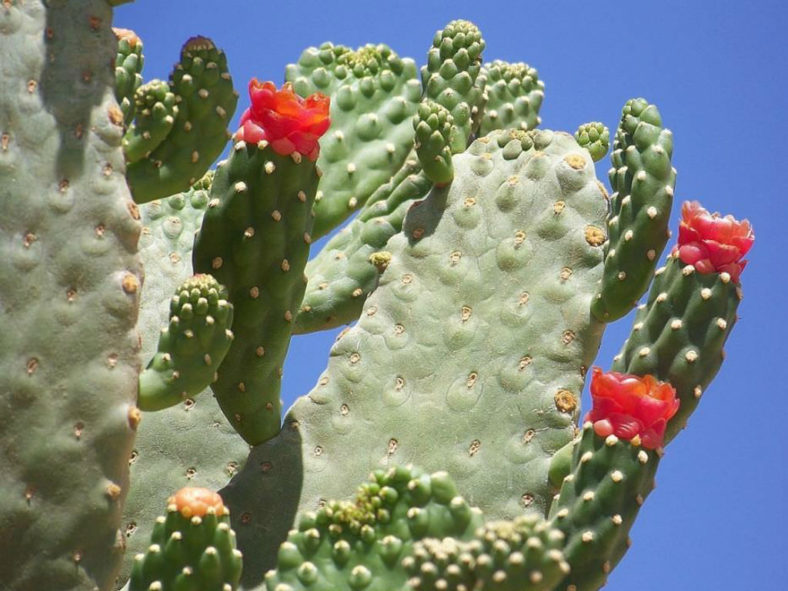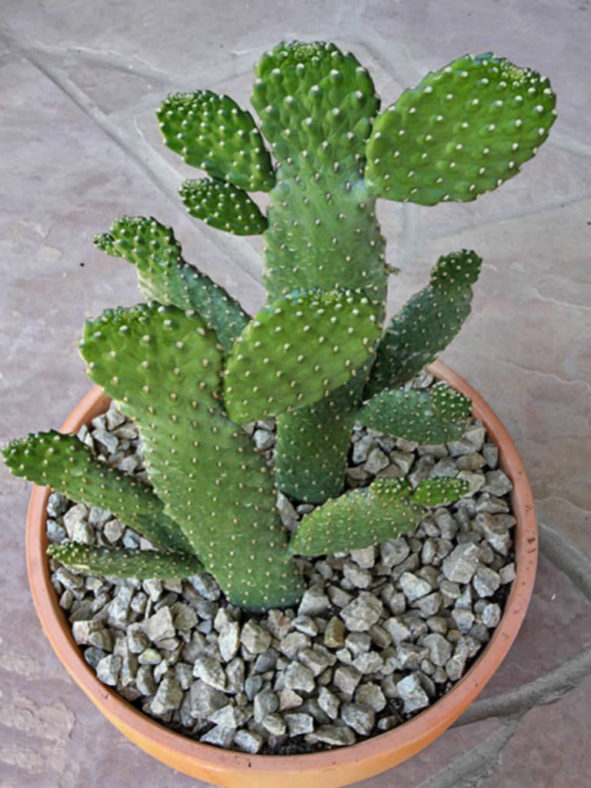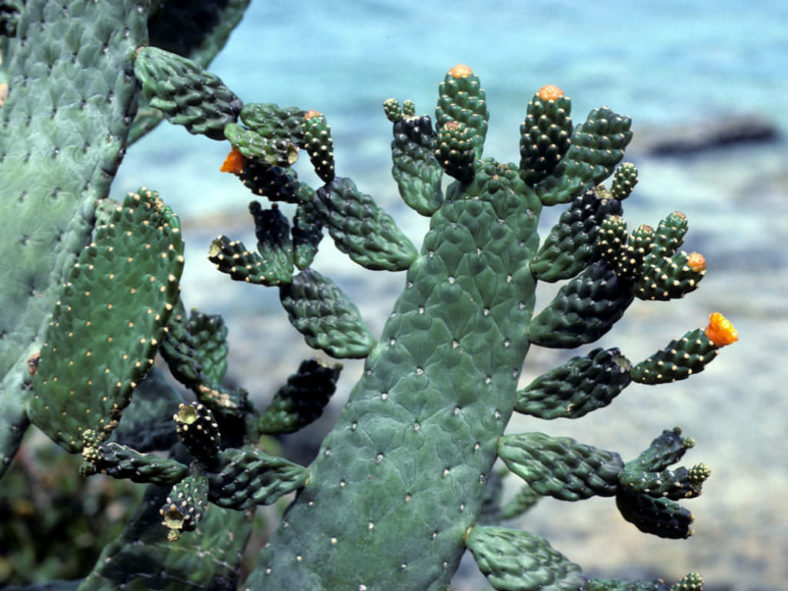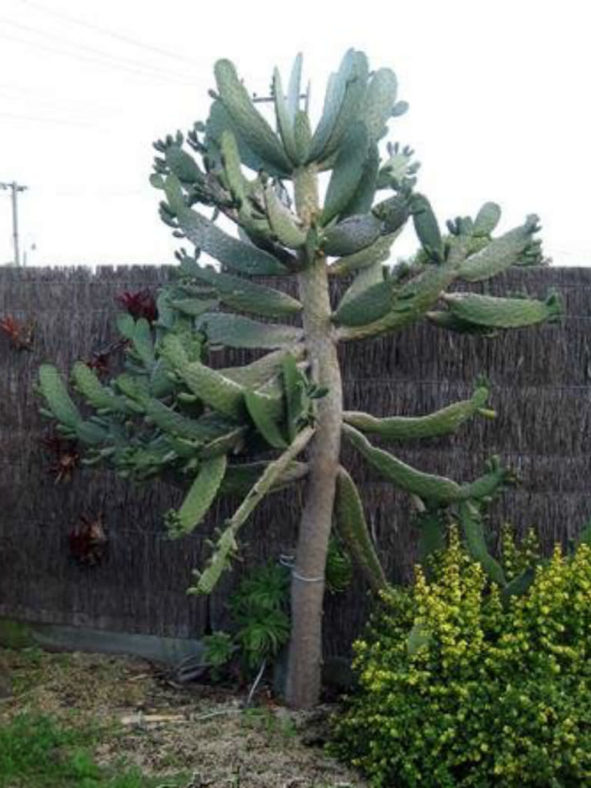Scientific Name
Consolea rubescens (Salm-Dyck ex DC.) Lem.
Common Name(s)
Road Kill Cactus
Synonym(s)
Cactus rubescens, Consolea moniliformis subsp. rubescens, Opuntia rubescens
Scientific Classification
Family: Cactaceae
Subfamily: Opuntioideae
Tribe: Opuntieae
Genus: Consolea
Origin
Consolea rubescens is native to the Caribbean Islands. It grows along the sandy coasts of the Lesser Antilles, Virgin Islands, and Puerto Rico.
Description
Consolea rubescens, also known as Consolea moniliformis subsp. rubescens or Opuntia rubescens, is a tree-like, almost spineless cactus with a cylindrical trunk and flattened, spreading or descending branches with lateral paddles. It can grow up to 20 feet (6 m) tall. The trunk can reach up to 8 inches (20 cm) in diameter and has reddish or grayish brown, peeling bark. The paddles can be lance-shaped, oblong, or elliptic, have wavy margins, and can measure up to 20 inches (50 cm) long. They look like they have tire tracks across them, hence the common name "Road Kill Cactus." The areoles are up 0.8 inches (2 cm) apart and bear tiny, yellowish, woolly fibers and deciduous brown glochids. The spines can also be present, usually between 6 and 12. They are grayish and can grow up to 1.2 inches (3 cm) long.
The yellow flowers turn orange with age and appear in spring. They can reach up to 1.2 inches (3 cm) in diameter. The fruits are green, flattened-obovoid, with persistent spines, and can grow up to 2.4 inches (6 cm) long.

Hardiness
USDA hardiness zone 9b to 11b: from 25 °F (−3.9 °C) to 50 °F (+10 °C).
How to Grow and Care
Though the large variety of species within the Opuntia genus means different types of prickly pears may need slightly different care, all are desert cacti that require lots of sun, lots of light, and very little water. If you live in a hot, arid area, particularly the American Southwest, these plants can generally be planted outside, left alone, and enjoyed.
Though Opuntia will grow just fine in a garden, they can also be grown in pots. To repot, ensure the soil is dry, remove the pot, and remove the old soil. After treating any cuts with fungicide, place the prickly pear in a new pot and backfill it with potting soil. As with a new cutting, ensure not to briefly water a newly repotting prickly pear to avoid rotting its roots.
See more at How to Grow and Care for Opuntia.
Links
- Back to genus Consolea
- Succupedia: Browse succulents by Scientific Name, Common Name, Genus, Family, USDA Hardiness Zone, Origin, or cacti by Genus
Photo Gallery
Click on a photo to see a larger version.


